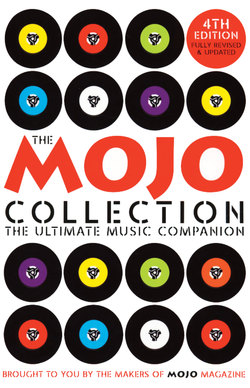Читать книгу The Mojo Collection - Various Mojo Magazine - Страница 71
На сайте Литреса книга снята с продажи.
The Kinks Face To Face Ray Davies’s satirical gaze – here turned on himself – finds its first full expression in album format.
ОглавлениеRecord label: Pye (UK) Reprise (US)
Produced: Raymond Douglas Davies and Shel Talmy
Recorded: Pye Studios, London; October 23, 1965 and April 21, 1966
Released: October 28, 1966
Chart peaks: 12 (UK) 135 (US)
Personnel: Ray Davies (g, v); Dave Davies (g, bv), Mick Avory (d); Pete Quaife (b, bv)
Track listing: Party Line; Rosie Won’t You Please Come Home; Dandy (S/US); Too Much On My Mind; Session Man; Rainy Day In June; A House In The Country; Holiday In Waikiki; Most Exclusive Residence For Sale; Fancy; Little Miss Queen Of Darkness; You’re Looking Fine; Sunny Afternoon (S); I’ll Remember
Running time: 59.44
Current CD: Sanctuary Midline SMRCD028 adds: I’m Not Like Everybody Else; Dead End Street (S); Big Black Smoke; Mister Pleasant; This Is Where I Belong; Mr Reporter; Little Women
Further listening: Something Else By The Kinks (1967); Arthur Or The Decline And Fall Of The British Empire (1969)
Further reading: The Kinks: The Sound And The Fury (Johnny Rogan, 1984); The Kinks: The Official Biography (Jon Savage, 1984); www.thekinks.com
Download: Not currently legally available
Once the more important business of selecting their next hit single had been completed, The Kinks usually booked some studio time and rushed through a threadbare selection of uninspired material. By 1966, the pop aristocracy, inevitably led by The Beatles, was starting to use the album format for artistic expression, Ray Davies decided it was time to grasp the nettle and dazzle with 14 of his own compositions. A full year before Sgt. Pepper he was planning an alluring montage in which tracks would be connected by sound effects. Davies’s musical ambitions coincided with a dramatic turn in his life. Over the previous year, he had split with manager Larry Page and music publisher Eddie Kassner. A debilitating court battle lay ahead and Ray’s nerves were frazzled. In the meantime, The Kinks had been banned in America and were fighting among themselves. Like Brian Wilson across the water, Davies was battling personal demons and simultaneously trying to push his group into fresh musical areas.
‘I was a zombie,’ he admits. ‘I’d been on the go from when we first made it until then, and I was completely out of my mind. I went to sleep and woke up a week later with a moustache. I don’t know what happened to me. I’d run into the West End with my money stuffed in my socks, I’d tried to punch my press agent, I was chased down Denmark Street by the police, hustled into a taxi by a psychiatrist and driven off somewhere.’
With Davies succumbing to a nervous breakdown, The Kinks had to complete a short European tour using a ringer. Meanwhile, Ray rested at home and composed this remarkable series of songs, many of which articulated his ambivalent feelings about wealth, fame and class. His pining for his sister, who’d emigrated just before The Kinks’ formation, is behind Rosie Won’t You Please Come Home. By contrast, the singalong Sunny Afternoon seems to centre around the life of a disillusioned young pop star with aristocratic pretentions; a memorable summer Number 1 single, it nestled comfortably here alongside other tales of nouveau riche overreaching – Most Exclusive Residence For Sale and House In The Country, the latter inspiring Blur’s Number 1 single Country House 30 years on.
